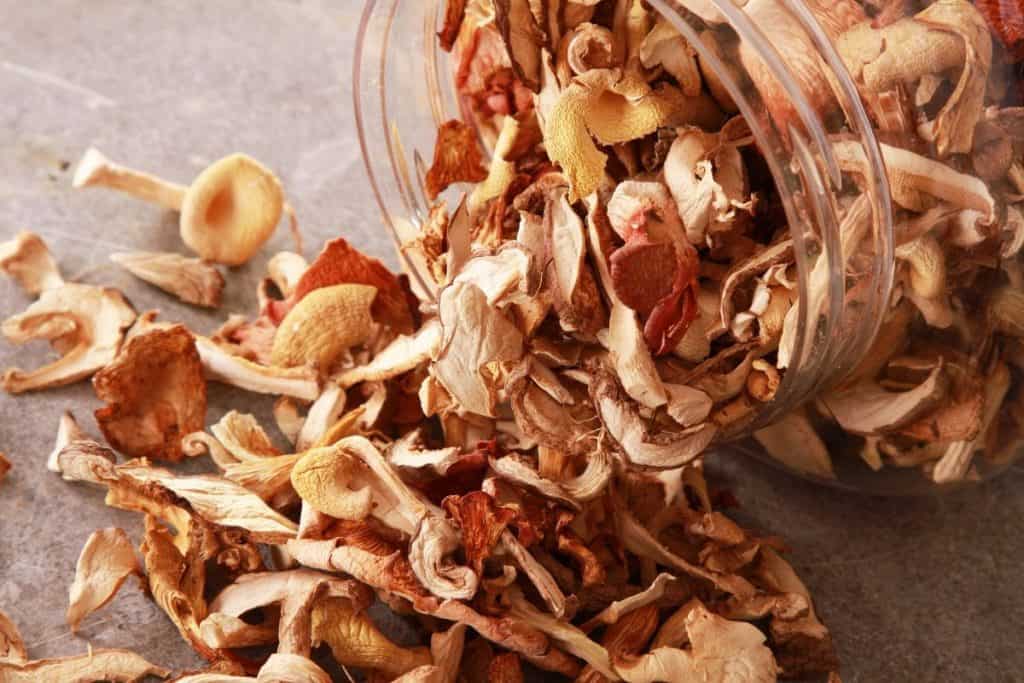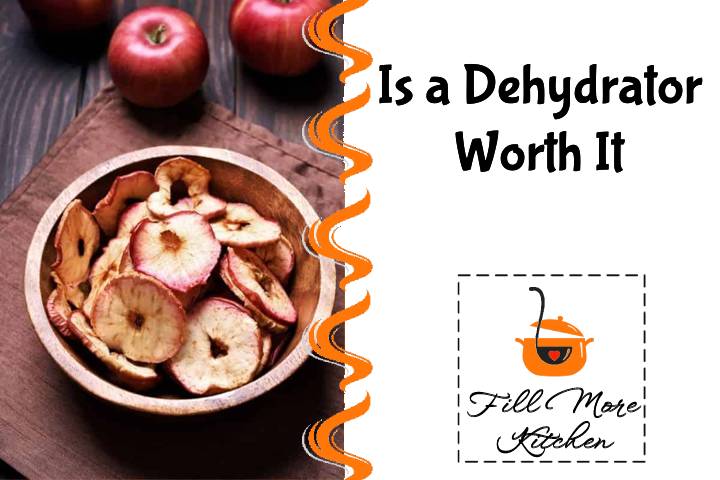Each year, a new kitchen appliance is marketed as one of the essential must-have appliances, and among them is the dehydrator.
Those who prioritize fitness, health, and nutrition often endorse this device as a valuable purchase for individuals seeking to maintain a healthy diet. However, is it truly worth the cost?
Is it worth investing in a dehydrator?
If you frequently purchase dehydrated foods, investing in a dehydrator is a worthwhile decision since store-bought options are considerably more expensive, making it logical to dry your food at home. You can buy ingredients in bulk during the season and dehydrate them at home for a minimal operational cost, as the average dehydrator doesn’t require much expense to operate.
It is crucial to understand the benefits and drawbacks of a dehydrator before starting your search for the top-rated one.
Wondering about the cost of operation, maintenance needs, and health benefits of a dehydrator? Keep reading for a comprehensive guide.
Is a Dehydrator Worth It?
Dehydrators are utilized for extracting moisture from food, resulting in a distinctive taste and consistency, while also extending the shelf life of the dehydrated food.
Consider this: Dehydrating food is essential to achieving the distinct taste and texture found in sun-dried tomatoes and beef jerky.
Countless fruits, vegetables, bread, and cheese can be dried in a dehydrator, making it a wise investment for those who enjoy consuming dehydrated foods.
Acquiring this dehydrator for your household not only eliminates the inconvenience of frequenting the store whenever you have a desire for snacks, but it also reduces expenses.
For a small pack of dried fruits that may not even be enough for a snack, you would typically pay around $2. However, by using a dehydrator, you have complete control over the amount of fruit you dry without spending any extra money.
Here are a few advantages that come with purchasing a dehydrator.
It Saves Space.
Although a dehydrator occupies a considerable amount of space in your kitchen, it compensates by reducing the size of food items, enabling you to store more preserves in a limited area.
Dehydrated food can be useful for emergencies or camping trips, and it’s also a great option for those with limited storage space who need extra food.
It Prolongs Shelf-Life.
Dehydration is an effective technique for food preservation that operates by extracting moisture from the food, which prevents microorganisms from thriving on it and extends its shelf-life.
Preserving food for an extended period of time can be achieved by dehydrating it. This is especially useful if you’re camping for a long duration or going away from home and want to keep the edibles fresh. Dehydrated items can remain edible for up to a year or even longer, depending on the type of food.
It Gives Versatile Results.
One of the reasons why purchasing a dehydrator is a worthwhile investment is due to its ability to produce versatile outcomes. This device not only enables you to dehydrate various items such as fruits, vegetables, and herbs but also permits you to rehydrate them if you prefer consuming them that way.
Itâs Easy to Know When Food Has Gone Bad.
Dehydration is a beneficial technique for preserving food as it simplifies the detection of spoiled food.
While canned foods can contain hidden microbes, detecting mold on dehydrated food is simple, ensuring that you consume fresh food when there are no visible signs of mold.
Itâs Cost-Effective.
Investing in a dehydrator is a cost-effective option that eliminates the need to buy processed dried foods, and most models are expandable, allowing you to dry more produce by adding extra trays.
It Offers Flexible Usage.

Dehydrators provide versatility in usage as they allow you to dry a single fruit or multiple trays of fruits, and you can choose to run the appliance for several hours or even days based on your preference.
Dehydrators Have a Fool-Proof Technique.
When using a dehydrator, it is highly unlikely to make mistakes as the appliance operates at low temperatures, making it challenging to over-dry your food.
If the foods become moist because of excessive moisture, you can easily put them back in the dehydrator and dry them out again. The process is straightforward and user-friendly, making it accessible to everyone.
It Provides Healthy Food.
Using methods such as salting or canning for food preservation necessitates the addition of preservatives to eliminate microorganisms and inhibit their growth, and if heat is involved, there is a high likelihood that some nutrients will be lost.
Dehydration doesn’t require the addition of preservatives as the absence of moisture is sufficient to prevent the growth of harmful microorganisms.
Moreover, dehydration preserves all the nutrients in the food. Therefore, if you are seeking a healthy method of preserving food, dehydration is an excellent choice.
Disadvantages of Dehydrators
Considering all the amazing advantages, you might already be convinced to invest in a dehydrator. Nevertheless, there are some crucial factors to consider before buying this appliance.
They Donât Contain Odor.
The aroma of dehydrating apples is one that most people would not mind having in their kitchens. But itâs an entirely different situation for onions and garlic.
Regrettably, with a dehydrator, you are compelled to inhale the scent of everything that is produced by the device since it lacks an odor filter.
To ensure that the smell does not linger in your living space, it is advisable to position the dehydrator in a location away from your home, like the garage, and ensure that there is proper ventilation in the area.
They Donât Work with High-Fat Foods.
Dehydrators have a single purpose, which is to eliminate moisture from food to increase its shelf life. Nevertheless, it is not advisable to anticipate similar outcomes with high-fat foods such as avocado. Although dehydration can enhance the flavor and consistency of these foods, it will not extend their longevity.
When it comes to dehydrating foods like beef jerky, it is advisable to remove the fat before using a dehydrator. Additionally, if you plan on storing the jerky for more than a week, refrigeration is necessary to avoid spoilage.
They Wonât Make Garlic or Onion Powder.
Home dehydrators are not effective in producing onion and garlic powders as they do not extract as much moisture as commercial driers. However, they can still be used for dehydrating and rehydrating these food items.
In Conclusion
Considering the benefits of a dehydrator, it is definitely worth investing in as it offers the convenience of preparing tasty and nutritious food at home while also providing a secure method for preserving food that can last up to a year.
Furthermore, purchasing a dehydrator can result in cost and space savings. While a domestic dehydrator may not yield identical outcomes to a professional machine, it is undoubtedly a valuable acquisition.
Before making a final decision, it is important to thoroughly examine the available options and compare their features.
You can also check this video about “Is a Dehydrator Worth It?”
Check out our top 10 reviews!
Related posts
https://fillmorekitchen.com/can-an-oven-be-used-to-reheat-food-if-done-correctly-yes/
https://fillmorekitchen.com/how-to-fix-dishwasher-error-code-e1/
https://fillmorekitchen.com/can-you-run-an-empty-dishwasher-to-clean-it/
https://fillmorekitchen.com/can-you-eat-turkey-left-out-at-room-temperature/
https://fillmorekitchen.com/can-you-put-foil-in-a-toaster-oven/



